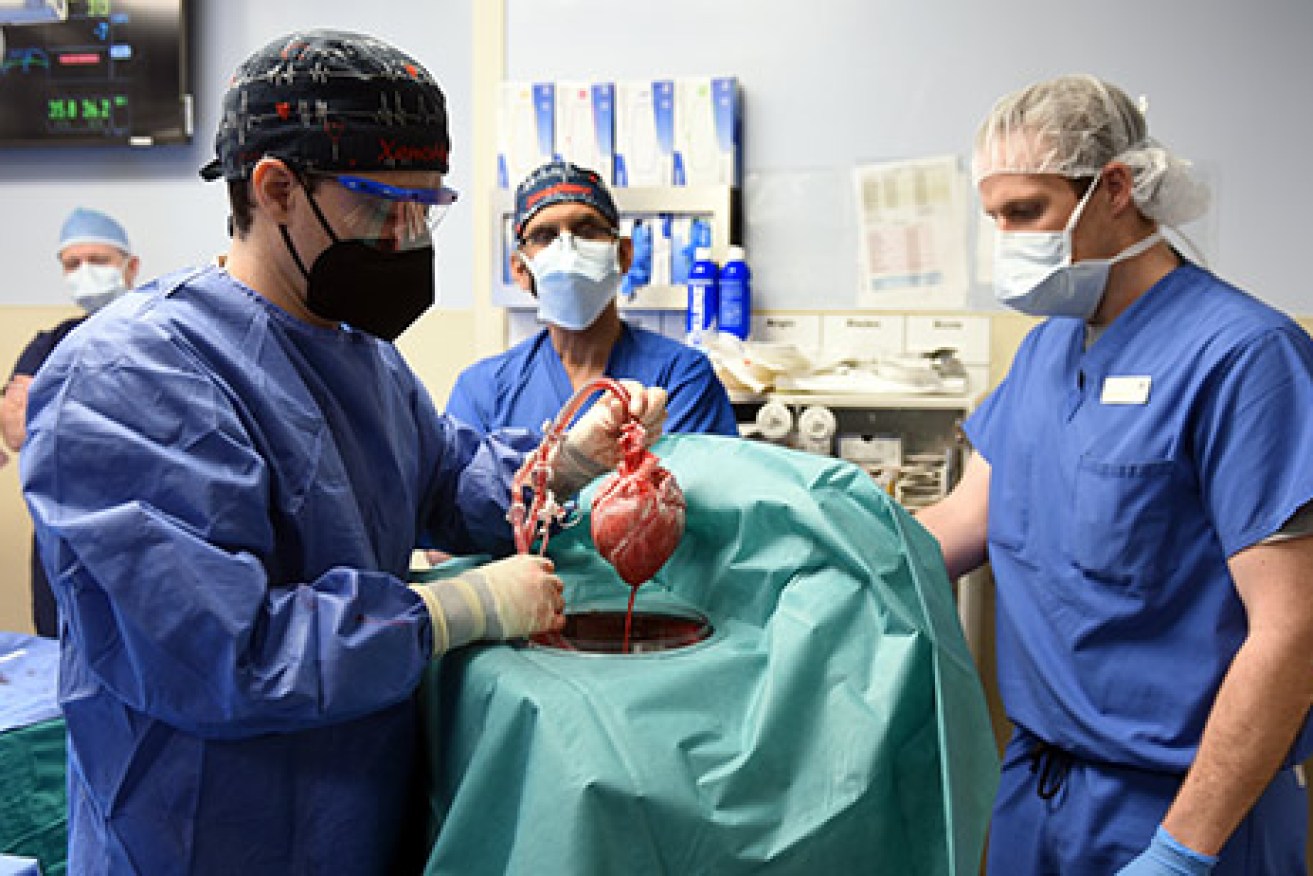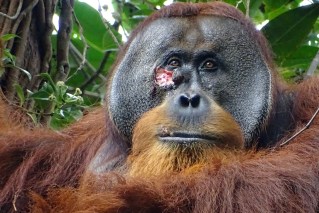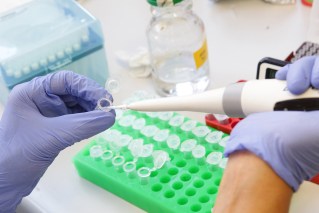Man who received a pig heart transplant has died: Doctors unsure why


Back to the drawing board, surgeons are optimistic about future transplants. Photo: Getty
Two months ago, the world was astounded by news that a dying man had successfully received an “historic” world-first transplant of a genetically-modified pig heart.
The man, David Bennett, 57, died on Tuesday.
His doctors are unsure why he died. The pig’s heart had worked well for several weeks and shown no sign of rejection.
“There was no obvious cause identified at the time of his death,” a spokeswoman from the University of Maryland Medical Centre told The New York Times.
Hospital officials wouldn’t comment further because Mr Bennett’s doctors had yet to conduct a thorough examination. The results will be published in a peer-reviewed journal.

Surgeon Bartley P. Griffith and David Bennett.
But a statement from the University of Maryland School of Medicine said Mr Bennett’s condition began deteriorating toward the end of last week.
When it became clear that he wouldn’t recover, “he was given compassionate palliative care”.
He remained conscious and coherent and was able to communicate with his family during his final hours.
Dr Bartley Griffith, the surgeon who performed the transplant, said the hospital’s staff was “devastated” by the loss of Mr Bennett.
“He proved to be a brave and noble patient who fought all the way to the end,” Dr Griffith said.
“Mr Bennett became known by millions of people around the world for his courage and steadfast will to live.”
A complicated man
The surgery made headlines around the world in early January, and the elation in the media wasn’t overly dampened by revelations, six days after the surgery, that Mr Bennett in 1988 had gone to prison for stabbing a man seven times.
He’d apparently led a trouble-free life since being paroled, save for his failed heart.
As for the surgery, he was initially underwhelmed.
His first words upon waking were: “I can’t stand this.”
His son, David Bennett Jr, however, was suitably impressed:
“This is significant for my dad, for the United States, for the world,” he said.
“This is ground-breaking, this is remarkable and, frankly, this is a miracle.”
The pig’s heart allowed Mr Bennett Sr to continue living a life that was otherwise beyond saving. In the last stages of terminal heart disease, he’d been ruled ineligible to receive a human heart.
Doctors at the University of Maryland Medical Centre in Baltimore were granted a special dispensation from the FDA to carry out the marathon procedure.
“It was either die or do this transplant. I want to live. I know it’s a shot in the dark, but it’s my last choice,” said Mr Bennett, in a prepared statement, a day before the surgery was conducted.
“I look forward to getting out of bed after I recover.”
A newfound optimism
In the first couple of days, Mr Bennett remained connected to a heart-lung machine to support the new heart. He was soon taken off the machine, and the pig heart is working independently.
As the weeks went by with no sign of trouble, Mr Bennett began to feel more optimistic and interested in life.
He’d been spending time with his family and participating in physical therapy to help regain strength. He watched the Super Bowl with his physical therapist and “spoke often about wanting to get home to his dog Lucky”.
Dr Muhammad M. Mohiuddin is Professor of Surgery and Scientific Director of the Cardiac Xenotransplantation Program at UMSOM. Following Mr Bennett’s death, he said:
“We have gained invaluable insights learning that the genetically modified pig heart can function well within the human body while the immune system is adequately suppressed.
“We remain optimistic and plan on continuing our work in future clinical trials.”
To read more about the science behind the transplant, see our January report here.








